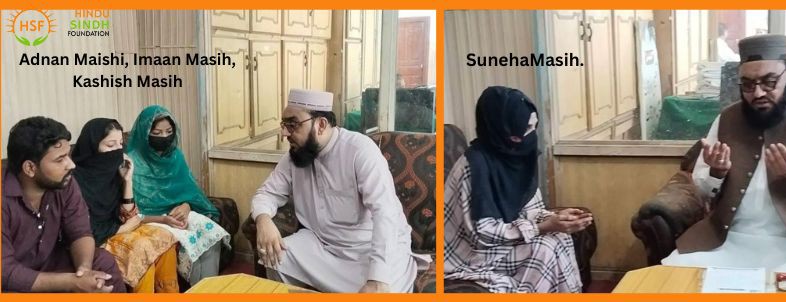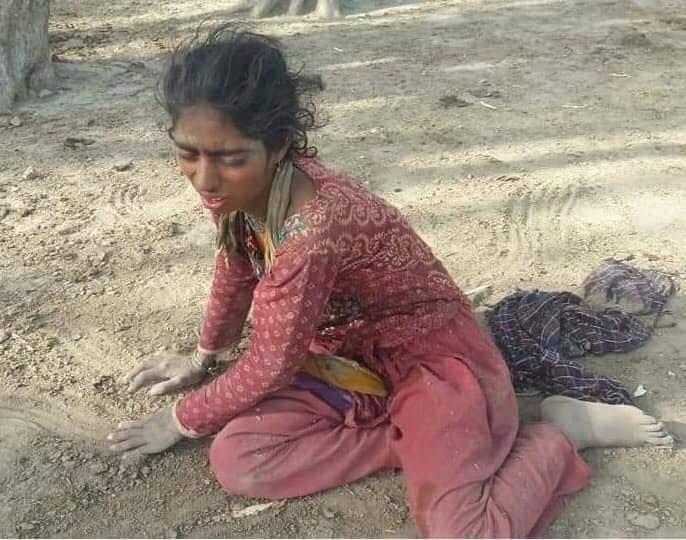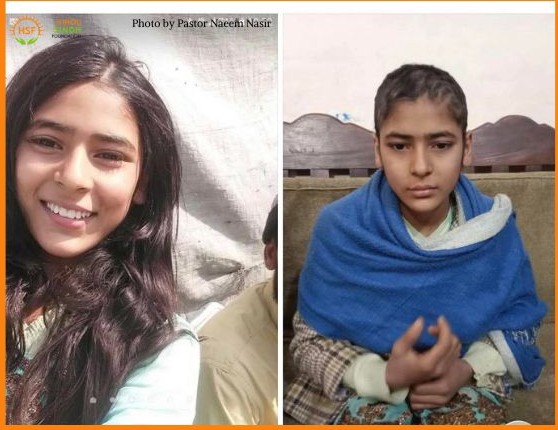Introduction: A Crisis of Faith and Fear
Pakistan’s Christian community is under siege. Young girls like Suneha Mashi (now renamed Pakeeza) from Rawalpindi and Adnan Masih (Mohammed Adnan), Kashish Masih (Ayesha), and Imaan Masih (Imaan Fatima) from Sargodha have been forcibly converted to Islam, their identities erased, and their families left powerless. Behind these atrocities stands Qazi Nigah Mustafa Chishti, a radical cleric affiliated with Markaz Ahl-e-Sunnat Jamia Masjid Hameed Shah Company Bagh in Sargodha, who openly distributes forced conversion certificates while holding government-backed positions in so-called “Peace” and “Interfaith Harmony” committees.
Yet, amidst this systematic persecution, a disturbing question arises:
The Horrifying Reality of Forced Conversions
1. The Case of Suneha Mashi (Pakeeza)
Suneha Mashi, a Christian girl from Rawalpindi, was abducted, forcibly converted, and renamed Pakeeza—a common tactic to erase her Christian identity. Her case is not unique. In Sargodha, three more Christians—Adnan Masih, Kashish Masih, and Imaan Masih—were given Muslim names after being coerced into converting.
These conversions follow a chilling pattern:
- Abduction and sexual violence (often used to break resistance).
- Forced marriages to Muslim men.
- Fake conversion certificates issued by radical clerics like Qazi Nigah Mustafa Chishti.
- Threats against families who seek justice.
2. The Role of Qazi Nigah Mustafa Chishti
Chishti is not a fringe figure—he is embedded in Pakistan’s institutional framework, holding roles such as:
- District member of the Peace Committee (a government body).
- Divisional president of the Interfaith Harmony Committee (meant to promote religious coexistence).
His dual role exposes a hypocrisy at the heart of Pakistan’s treatment of minorities:
- How can a man accused of forced conversions be entrusted with protecting religious harmony?
- Why is the state shielding him instead of holding him accountable?
The Puzzle: Why Do Some Christians Support Their Oppressors?
The silence- and in some cases, complicity- of local Christian leaders is one of the most troubling aspects of this crisis. Several factors explain this paradox:
1. Fear and Intimidation
- Violent reprisals: Christians who speak out risk assassination, false blasphemy charges, or mob violence (e.g., the murder of Shahbaz Bhatti, Pakistan’s only Christian federal minister).
- Family threats: Many fear their daughters, sisters, or wives will be next in line for abduction.
2. Political and Financial Dependence
- Government patronage: Some Christian politicians and activists rely on state support for funding, security, or influence. Challenging the system could mean losing everything.
- Bribery and coercion: In some cases, clerics or local power brokers offer money or protection in exchange for silence or cooperation.
3. Fragmentation Within the Christian Community
- Denominational divides: Pakistan’s Christians are split between Catholics, Protestants, and Pentecostals, making unified resistance difficult.
- Class and ethnic divisions: Wealthier, urban Christians often distance themselves from the struggles of rural, poor Christians, who bear the brunt of persecution.
4. Lack of Legal Recourse
- Biased judiciary: Courts rarely rule in favor of minorities, especially in cases involving forced conversions or blasphemy.
- Police complicity: In many cases, law enforcement sides with the oppressors, making justice nearly impossible.
5. Psychological Manipulation
- : Some Christians, after decades of oppression, begin to internalize their persecution and rationalize their oppressors’ actions.
- : Radical groups sometimes offer security or favors to Christian leaders who toe the line.
The Role of “Peace Committees” in Enabling Persecution
The involvement of figures like Qazi Nigah Mustafa Chishti in government-backed committees is a glaring example of institutionalized persecution. These committees, supposed to protect minorities, often:
- Legitimize forced conversions by issuing fake certificates.
- Pressure victims to “accept” their fate under the guise of “harmony.”
- Intimidate activists who dare to challenge the status quo.
The International Community’s Failure
While human rights organizations like Amnesty International and the USCIRF have documented these crimes, little meaningful action has been taken. The global silence enables Pakistan’s culture of impunity.
What Must Be Done?
- : Perpetrators like Qazi Nigah Mustafa Chishti should face travel bans and asset freezes.
- Legal Accountability: Pakistan must investigate and prosecute those involved in forced conversions.
- Protection for Victims: Safe houses, legal aid, and psychological support for survivors.
- Media Pressure: Global outlets must expose these crimes to shame the perpetrators.
- : Governments must demand answers from Pakistan’s leadership.
A Call to Action: Christians Are Not Safe in Pakistan
The forced conversions of Suneha Mashi, Adnan Masih, Kashish Masih, and Imaan Masih are not isolated incidents-they are symptoms of a broken system. The silence of Christian leaders, the complicity of the state, and the impunity of radicals like Chishti must end.
Pakistani Christians are not safe. Their girls are hunted, their leaders are silenced, and their oppressors are protected by the state.
Demands for Justice
- Arrest and prosecution of Qazi Nigah Mustafa Chishti and his accomplices.
- Independent investigations into forced conversions in Sargodha, Rawalpindi, and nationwide.
- to exclude extremists.
- Stronger legal protections for Christian girls and harsh penalties for forced conversions.
- International monitoring of Pakistan’s treatment of religious minorities.
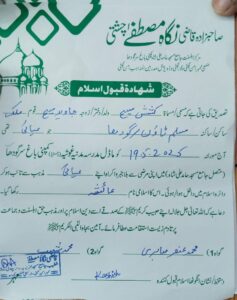
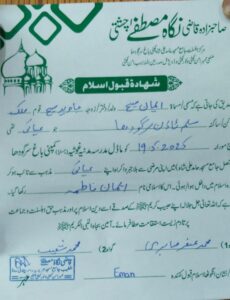
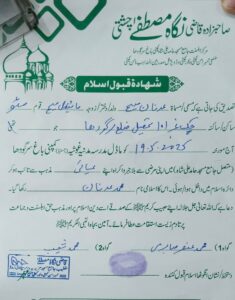
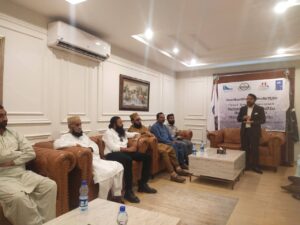
#StopForcedConversions #JusticeForSunehaMashi #FreeAdnanKashishImaan #EndImpunity #ProtectPakistaniChristians #ReligiousFreedom #HumanRightsViolation
For more updates and detailed coverage of this case and other issues affecting the Hindu and Sindhi communities in Sindh, Pakistan, stay tuned to Sindh Renaissance.



